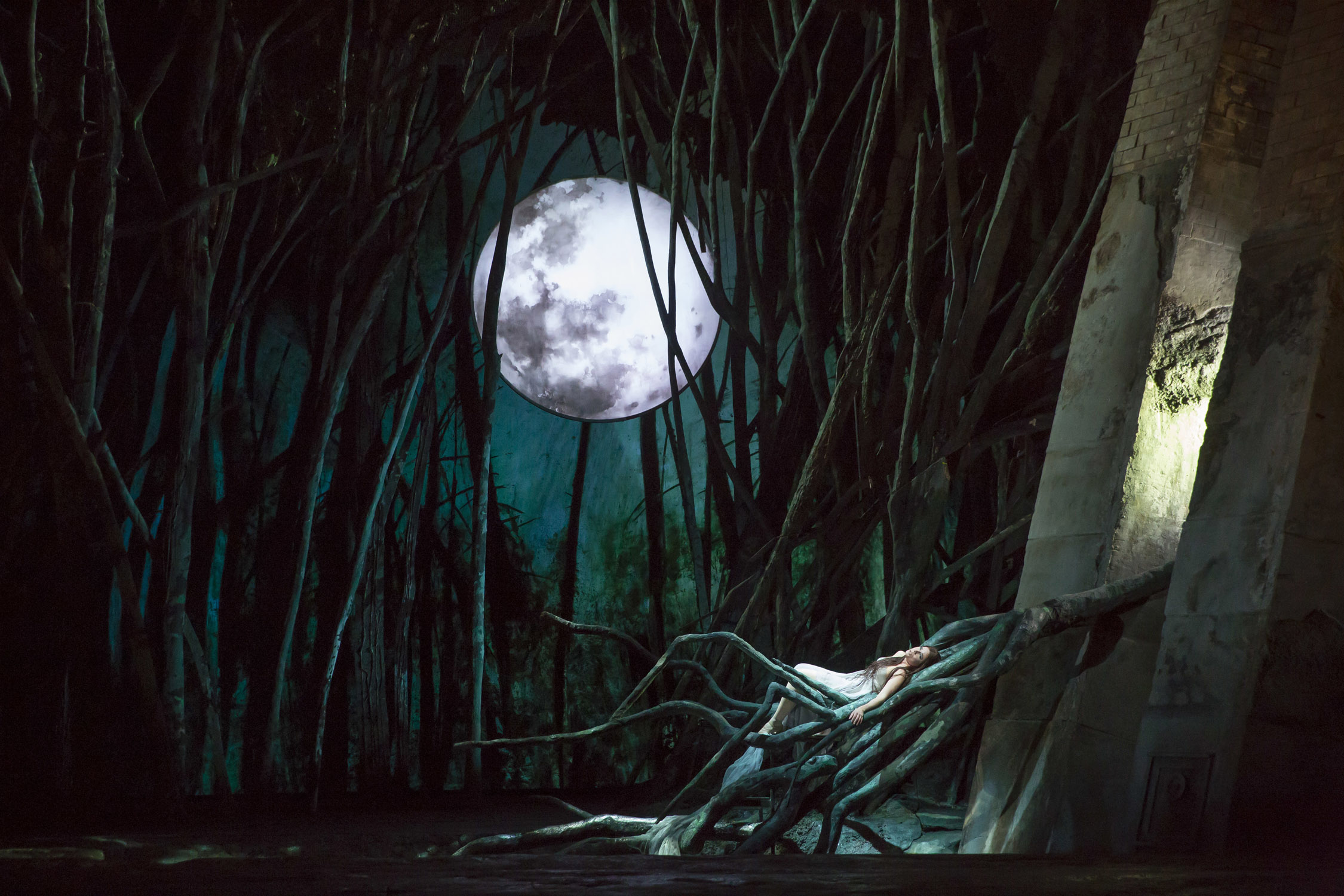There tends to be a lot of repetition in the classical-music world, and not just from the repeats in the music. For example, four local groups all started their 2014–15 seasons with concerts featuring Beethoven’s Fifth Symphony (Camerata Chicago, the Elgin Symphony Orchestra, the Illinois Philharmonic Orchestra, and the Lake Forest Symphony). One-of-a-kinds stand out, for good or for ill. Here are some of the extremes of 2014 in Chicago classical music.
Best New Opera Production
With apologies to Robert Falls’s grope-tastic Don Giovanni from the fall, Lyric Opera of Chicago’s winter production of Antonin Dvořák’s Rusalka, directed by David McVicar, lapped the field of 2014 operas, with breathtaking sets, gripping drama, and sensitive singing from Lyric standbys such as Ana María Martínez, Jill Grove, and Eric Owens. We would have been seduced to our watery dooms, too. In a strong year for local opera, Rusalka made us gush.
Best Venue Change
For the past four years, the Chicago Bach Project has celebrated Easter with a one-night-only performance of one of Bach’s sacred masterpieces: the St. Matthew Passion, the St. John Passion, or the Mass in B Minor. Each of the first three took place at St. Vincent de Paul Church, which visually offers befitting grandeur, but acoustically matches echo-friendly chant better than Bach’s baroque precision. The Project moved April’s St. Matthew Passion to the Harris Theater, and the counterpoint jumped to life in an inspiring performance of a piece that can sometimes feel like a slog in lesser interpretations. Having the excellent tenor Nicholas Phan as the Evangelist helped.
Most Ill Wind
Hear that giant sucking sound? It’s the sound of an exodus of principal wind players from the Chicago Symphony Orchestra. First, David McGill, the top bassoonist, announced in May that he would leave to teach full-time at Northwestern. In October, Mathieu Dufour, the principal flute, confirmed he would move to the Berlin Philharmonic. In December, it was Eugene Izotov, the principal oboe, who CSO public relations said had been granted a yearlong leave of absence to play with the San Francisco Symphony, as Dufour was for a season with the Los Angeles Philharmonic a few years back. But San Francisco PR quoted Izotov saying, “I am delighted to be joining the San Francisco Symphony as principal oboe.” Given that the principal horn seat is still unfilled, the CSO is only one principal clarinet away from a negative wind quintet.
Worst Collapse
The dominoes set in motion by the announcement of a Beethoven Festival for 2014 eventually caused its own cancelation. After the festival’s head, George Lepauw, had pledged not to announce plans for a new festival before paying debts from the 2013 festival, the 2014 festival’s announcement triggered grumbles on social media from unpaid musicians. A letter from Lepauw stating that he couldn’t raise money to make good on the debts without a festival in the offing failed to mollify the creditors, and the grumbles grew into animus. Musicians’ blogs and classical-music writers covered the conflict, and comments on the articles got nasty. The musicians’ union urged a boycott, and venues and musicians for 2014 began to cancel. Eventually the whole 2014 festival was scotched.
Worst Trend
In addition to the spectacular flameout of the 2014 Beethoven Festival, too many other Chicago classical organizations ended in ice instead of fire. Chicago Chamber Music, the consensus top chamber group in town, suspended operations for at least a year and possibly forever. Maverick Ensemble shut down midseason, scratching planned concerts, as did American Chamber Opera Company and Verismo Opera Theater. Several other groups’ websites haven’t been updated in at least a year, but naming them here might add to their woes if they’re still trying to reboot.



